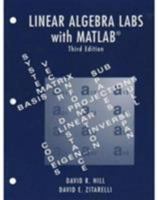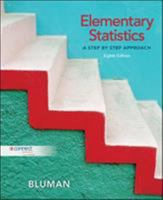Interactive Linear Algebra: A Laboratory Course Using Mathcad (TM) (Textbooks in Mathematical Sciences)
Porter and Hill is the first completely interactive linear algebra course. Developed by the authors and class-tested at Penn, Temple and Duke University, Interactive Linear Algebra runs in Mathcad (Windows environment). The subject is taught in a laboratory setting, with or without additional lectures, and students realize that through this technology-centered approach, mathematics becomes an experimental science. Using the interactive approach, students become active participants in the learning process, which leads to a deeper understanding of the concepts, and at the same time the approach develops confidence in their ability to read, use and write about linear algebra. The electronic text guides students through the standard topics in linear algebra, with a carefully planned series of computer-based discussions, examples, questions, and projects. With its graphics, symbolics, numerics and editing capabilities, Mathcad provides the digital tools needed for developing, visualizing, connecting and applying important concepts. This description may be from another edition of this product.
Format:Paperback
Language:English
ISBN:038794608X
ISBN13:9780387946085
Release Date:November 1996
Publisher:Key College
Length:529 Pages
Weight:2.00 lbs.
Dimensions:10.3" x 1.3" x 8.5"
You Might Also Enjoy
Customer Reviews
0 customer rating | 0 review
There are currently no reviews. Be the first to review this work.




















![Essential Calculus: Early Transcendentals [with WebAssign & Start Smart Guide]](https://i.thriftbooks.com/api/imagehandler/s/CF349820193E0705C886657C2FC13F576F906667.jpeg)



![An Imaginary Tale: The Story of "i" [the square root of minus one]](https://i.thriftbooks.com/api/imagehandler/s/D50755FE437DF16DA7757F4B488F63D4274E947C.jpeg)




















